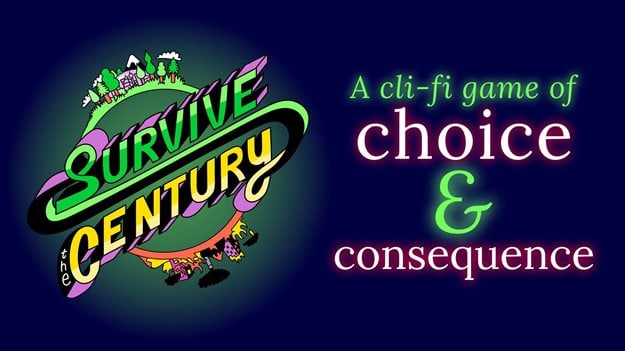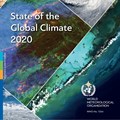It is the year 2050, the planet is warming up, meals come from nutritional food packs and dozens of new zoonotic viruses are spreading. As the editor of an influential newspaper, how would you try to shape public opinion?

Illustrations by Annika Brandow for Survive the Century, a climate fiction game about the political, environmental and social choices humans will face between 2021 and 2100. Handout via Survive the Century.
This is one of the scenarios encountered by players of an online game launched on Monday, 10 May, which uses humour and interactive decision-making to encourage people to think about the future of climate change, and what they can do about it.
Survive the Century is the work of scientists, economists and writers around the world brought together by US-based research group the National Socio-Environmental Synthesis Center (SESYNC), and lets players navigate the future from 2021 to 2100.
"This is a game for everyone, but particularly for climate nihilistic Gen Zs who know about climate change and feel hopeless and frustrated at the inaction they are seeing," said Samantha Beckbessinger, an author and game creator.
"We wanted to engage them with a sense of hopefulness that the future is long and there are a lot of choices ahead of us," she told the Thomson Reuters Foundation in a video call.
Climate anxiety - including panic attacks, insomnia, and obsessive thinking - linked to worry about the threat of environmental disaster, has become more common in young people, according to The Lancet medical journal.
Youth at forefront of climate protests
This is partly linked to youth being at the forefront of climate protests, with about 1.6 million student protesters calling on their governments to urgently tackle climate change in March 2019.
While the UN Climate Change Conference (COP26) due to take place in November could accelerate moves by the world's biggest polluters to reduce climate risks, Survive the Century's creators wanted to bring ordinary people into the debate too.
"We're used to the narrative: don't eat beef, don't fly so much and those are the choices you can make on climate change, but this game puts you in a different position," said Christopher Trisos, project lead and an environmental scientist.
The game takes players through different decision-making scenarios, based on science, from vaccine roll-outs to funding technological innovations that can help restore order or trigger anarchy.
Play and explore
"Play can be an incredibly powerful way to engage people and it isn't didactic, it doesn't aim to tell you facts and things to do, it lets you play and explore," Beckbessinger said.
At the end of the game, players are directed to a climate organisation near them.
Trisos has already been approached by high schools and universities interested in using the game as part of their curriculum.
"Climate change is made and experienced by people," said Simon Nicholson, project lead and an associate professor at the Washington-based American University.
"How the future will play out is going to be shaped by choices taken by people today, and tomorrow, and the day after."
Source: Thomson Reuters Foundation










